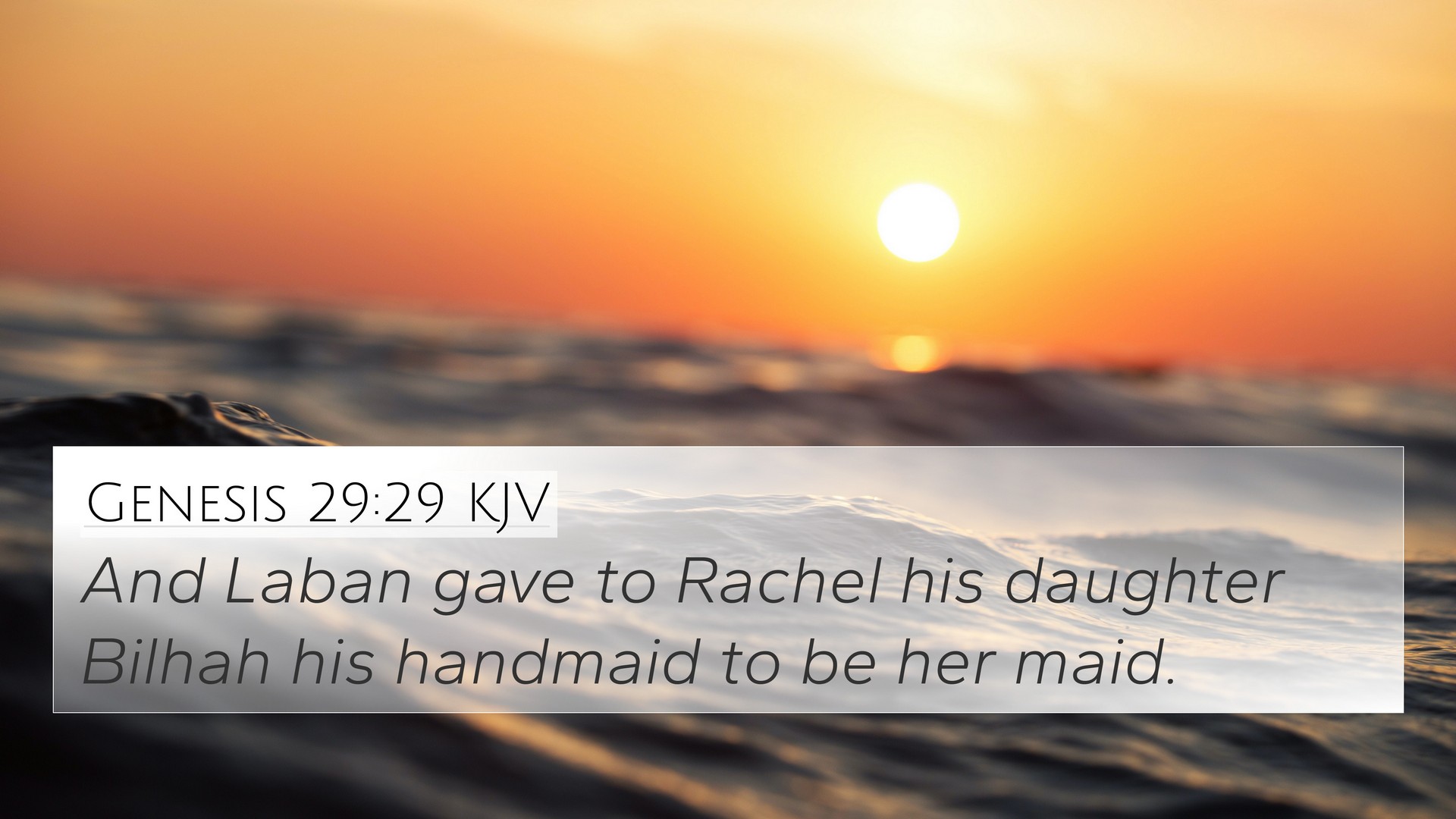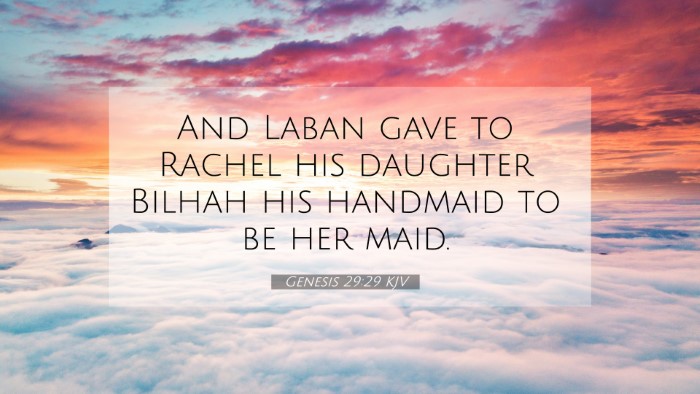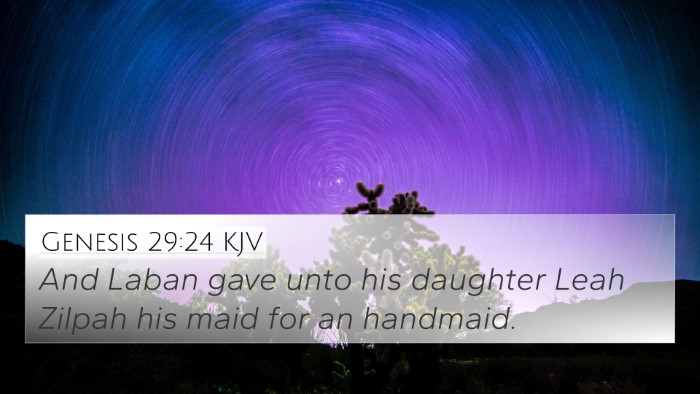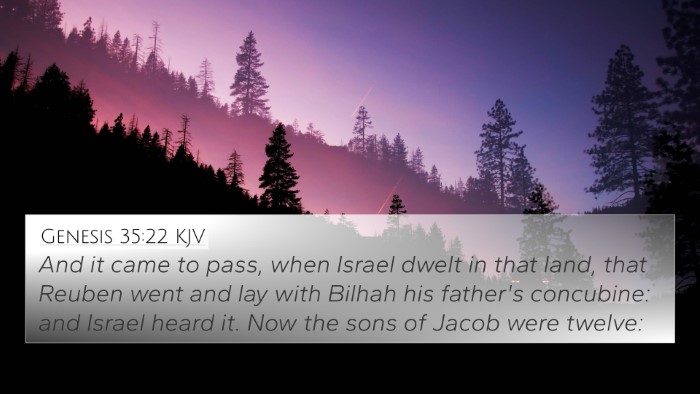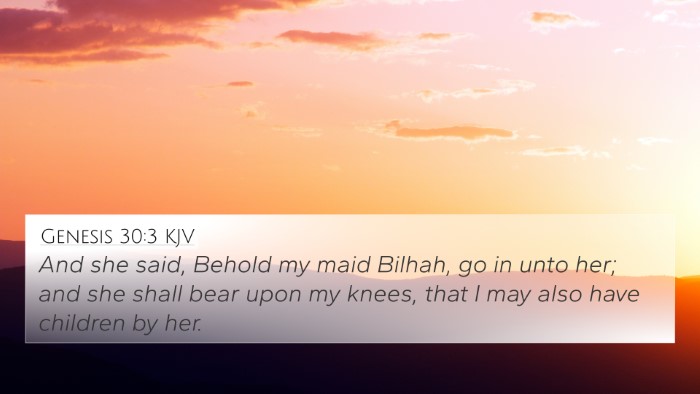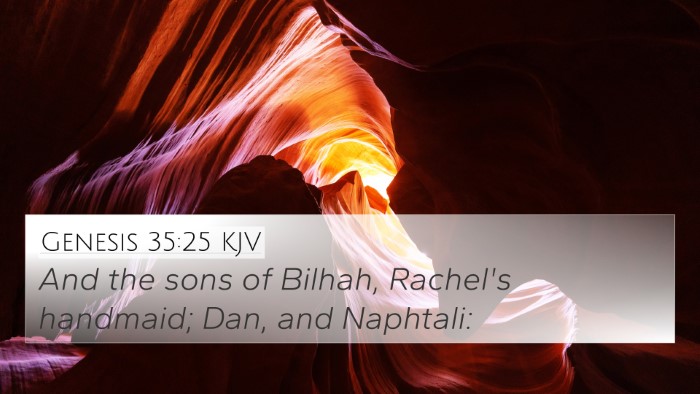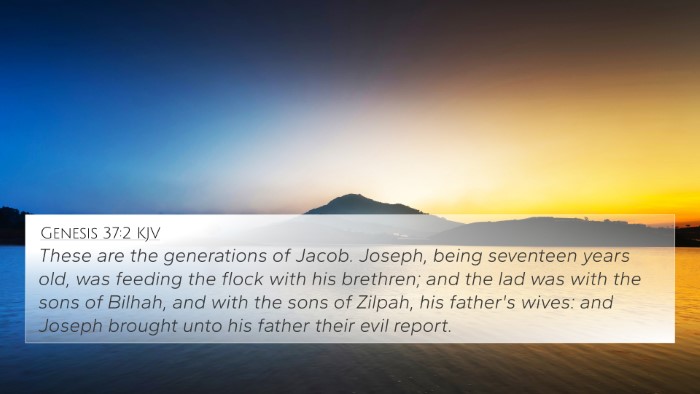Understanding Genesis 29:29
Bible Verse: Genesis 29:29 - "And Laban gave to Rachel his daughter Bilhah his handmaid to be her maid." (KJV)
This verse presents a pivotal moment in the narrative of Jacob, Rachel, and Leah within the broader context of Genesis. Here, we delve into the meaning, implications, and connections of this verse through insights from key public domain commentaries.
Overview of the Passage
Genesis 29:29 describes Laban's decision to give his servant Bilhah to his daughter Rachel. This act carries significant cultural and relational implications in the backdrop of ancient customs regarding marriage and familial structures.
Key Commentary Insights
Matthew Henry's Commentary
Matthew Henry emphasizes the patriarchal tradition of giving handmaids to wives, which often signified the desire for children. Rachel, though loved by Jacob, struggled with barrenness, paralleling the experience of Sarah, Abraham's wife. Bilhah's introduction as Rachel's maid illustrates the desperate measures women might undertake to ensure family lineage and societal standing.
Albert Barnes' Notes
Albert Barnes notes that the practice of giving a maid to a wife is indicative of the significant role women had in tribal heritage and lineage. By giving Bilhah to Rachel, Laban ensured that Rachel could bear children through Bilhah, thus strengthening the family line and fulfilling social expectations. The struggle and rivalry between Rachel and Leah are also evident at this juncture, accentuating the emotional complexities of their relationships.
Adam Clarke's Commentary
Adam Clarke outlines the historical context in which Bilhah's introduction serves not just as a means to produce heirs but also reflects the cultural norms of that era where barren women were given options to fulfill their roles in society. Clarke highlights that this event foreshadows deeper relational issues that will arise between Rachel and Leah, particularly concerning jealousy and competition for Jacob's affection and spiritual favor.
Lessons and Themes
This verse speaks volumes about human relationships, cultural practices, and the divine plan. It introduces themes of:
- Family Dynamics: The complex relationships among Jacob, Leah, and Rachel.
- Women in Scripture: The roles and agency of women in biblical narratives.
- Desperation for Acceptance: Rachel's emotional turmoil and her quest for identity through motherhood.
- Divine Providence: How this narrative connects to God’s overarching plan for His people.
Bible Verse Cross-References
This verse connects with several passages that enrich our understanding:
- Genesis 16:1-4: The story of Sarai giving Hagar to Abram.
- Genesis 30:1-3: Rachel’s desperation for children and her actions concerning Bilhah.
- Deuteronomy 21:15-17: Laws concerning inheritance and favoritism among wives.
- 1 Samuel 1:2-5: Hannah and Peninnah's rivalry regarding children.
- John 4:7-9: Jesus' interaction with the Samaritan woman; a reflection of societal norms towards women.
- Romans 9:9: Paul’s mention of Isaac, reflecting on the lineage chosen by God.
- Hebrews 11:11: Acknowledgement of the faith of women in biblical narratives regarding motherhood.
Thematic Bible Verse Connections
The connections between this verse and others across both Old and New Testaments illuminate broader theological themes:
- Childlessness and Divine Intervention: The narratives of Sarah (Genesis 21:1-3) and Hannah (1 Samuel 1) parallel Rachel's story.
- Love, Jealousy, and Acceptance: These themes recur throughout the lives of biblical women and their relationships.
- God’s Providence: The narrative reveals the unfolding plan of God in the lineage of Israel.
Conclusion
Genesis 29:29 provides a rich context for examining the lives of Rachel, Leah, and Jacob. It highlights the intertwined complexities of relationships and cultural practices while inviting readers to reflect on the broader implications within the narrative of God's people. Engaging with this verse through tools like a Bible concordance and cross-reference guide enhances our understanding of scriptural connections and themes, deepening our appreciation for the multifaceted biblical narratives.
